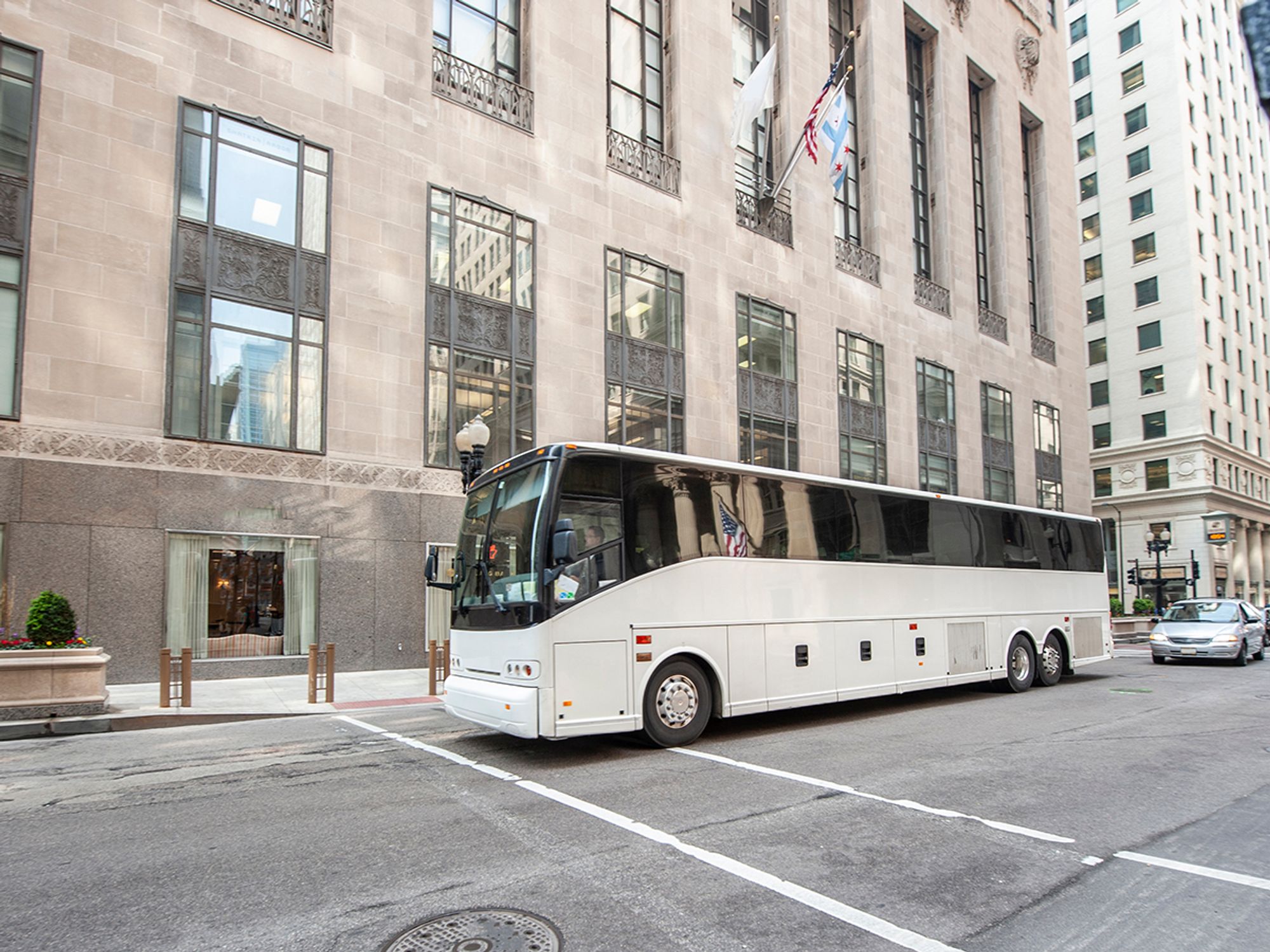For-hire carriers

- For-hire carriers must provide interstate transportation of passengers for direct or indirect compensation and generally provide the service to the public at large.
- Passenger-carrying vehicles less than 10,001 pounds and designed to carry 9 to 15 passengers (including the driver) with no compensation involved, are excluded from the definition of a commercial motor vehicle (CMV) and not subject to the Federal Motor Carrier Safety Regulations (FMCSRs).
For-hire motor carriers of passengers provide transportation of passengers in exchange for some sort of compensation. Examples of for-hire passenger transportation include intercity bus services, charter bus services, canoe rental company bus services, and hotel bus services.
Factors required to classify a carrier as “for-hire”
According to the Federal Motor Carrier Safety Administration, three factors need to be present before a motor carrier of passengers is classified as a for-hire carrier:
- The motor carrier provides interstate transportation of passengers for a commercial purpose;
- The motor carrier is compensated, either directly or indirectly, for the transportation service provided; and
- The transportation service is generally available to the public at large (although it does not have to be).
For-hire motor carriers of passengers are subject to all the FMCSRs, with possible exceptions based on vehicle weight, capacity, and method of compensation.
Compensation is the primary factor that determines for-hire transportation. An entity that is nonbusiness, nonprofit, or not-for-profit, is nevertheless engaged in for-hire passenger transportation when it receives compensation for such transportation.
Compensation may come in many forms including donations, gifts, gas money, offerings, etc. received for transportation. The question of whether an operation is for-hire should not be conflated, however, with the distinction required to determine whether a private passenger carrier’s operation is business or non-business. In those cases, the FMCSA has already determined that the operation is not for-hire.
Methods of compensation
The following are considered the two methods of compensation:
- Direct compensation means payment made to the motor carrier by the passengers or a person acting on behalf of the passengers for the transportation services provided, and not included in a total package charge or other assessment for highway transportation services.
- Indirect compensation exists when the cost of transportation is included in a total package charge for services such as in a tour group or rafting trips with package rates, as well as assisted living facilities with general fees or assessments for various services, including transportation, contained in the total facility charge to all residents.
Vehicle weight and capacity
Passenger-carrying vehicles weighing less than 10,001 pounds and designed to carry 9 to 15 passengers including the driver, with no compensation (direct or indirect) involved, are not subject to the FMCSRs and are excluded from the definition of a “commercial motor vehicle” in 390.5. The operation of such vehicles is exempt from the FMCSRs even if the carrier operates other vehicles that are subject to the safety regulations. An example of “no compensation” would be a company transporting employees without collecting fees from employees or a private school paying for transportation exclusively out of the school’s general budget.
| Passenger Capacity* | Vehicle Weight or Rating | Compensation Type | Applicability of FMCSRs |
|---|---|---|---|
| 16 or more | Any | Any | Subject to all FMCSRs, including rules for CDL licensing, drug and alcohol testing, insurance, driver qualification, hours of service, and vehicle maintenance and inspection. |
| 9 to 15 | Any | Direct | Subject to all FMCSRs, including rules for insurance, driver qualification, hours of service, and vehicle maintenance and inspection. Exempt from CDL licensing and drug and alcohol testing if weight remains under 26,001 pounds. |
| 9 to 15 | 10,000 pounds or less, including any trailer | Indirect | Exempt from most FMCSRs, but must keep an accident register, obtain a USDOT number and mark it on the vehicle, and comply with the prohibitions on texting and the use of hand-held mobile phones. See 390.3(f)(6). |
| 9 to 15 | 10,001 pounds or more, including any trailer | Subject to all FMCSRs based on weight of vehicle. Rules for CDL licensing and drug and alcohol testing do not apply if weight remains under 26,001 pounds. | |
| 15 or less | 10,000 pounds or less | None | FMCSRs to not apply. Vehicle does not meet the definition of a CMV. |
